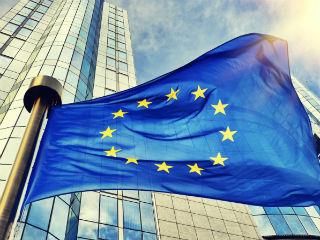
The days are long gone when Europeans’ national cultures were part of their colonialist armoury. Today the flow is if anything reversed, with Europe absorbing strong cultural influences from Asia, Africa and the Arab world. But the EU’s growing focus on the cultural affinities of its member countries is becoming vitally important.
by
Giles Merritt*
Sometimes deservedly, but often not, it is assailed by political disagreements among its members, policy differences over governance of the eurozone, and popular discontent (now intensified by the Brexit vote).
But the EU’s achievements in sixty years of progressive integration far outweigh its present shortcomings.
The Union can point to a wide range of activities where European solidarity and cooperation deliver benefits that no single member state could envisage alone. The snag – as ever – is that the EU fails to get the message across.
Five areas stand out. Each needs to be trumpeted. Each contributes substantially to a better quality of life in Europe while also helping to ensure that European countries maintain a competitive edge in the age of globalisation.
These “saving graces” encompass trade, technology, cultural identity, security and environmental leadership. The key question is how they can be further strengthened and more effectively communicated.
Although Europe’s share of accelerating global GDP is shrinking, the EU’s collective clout as the world’s top trading bloc remains an unparalleled asset.
Asia’s emerging economic giants are understandably eager to revise the post-World War 2 Bretton Woods arrangements that still favour the West, and the EU has a crucially important role to play. Europe’s credibility in this process is reinforced by decades of global leadership in development assistance, with two billion people raised out of poverty over the past quarter-century.
Europe’s researchers notch up half of all scientific breakthroughs around the world, and EU-wide funding and collaboration is an increasingly vital part of this achievement. Europeans are notoriously poor at turning their inventions into commercially successful innovations. The EU and its member states must raise their game in this area. Slowly but surely, the EU is directing more funding from its own and national budgets into high-technology sectors – those that will dominate the international economy and determine the winners and losers in the 21st century.
The days are long gone when Europeans’ national cultures were part of their colonialist armoury. Today the flow is if anything reversed, with Europe absorbing strong cultural influences from Asia, Africa and the Arab world. But the EU’s growing focus on the cultural affinities of its member countries is becoming vitally important.
The awareness and emulation of each other’s cultures marks an essential next step in Europe’s integration process, and in the information age the EU is well-equipped to promote this. EU-level policies should be the framework for a shared European culture – one that is capable of being strengthened by the arrival of migrants.
Ideas for an EU “Security Union” and even the creation of a “European army” are controversial. The European project eschewed a military dimension for almost half a century after the signature of the Treaty of Rome.
Now, a sense of vulnerability on its eastern and southern flanks, coupled with uncertainties over Russian assertiveness and American intentions, is pushing security up the EU agenda. Post-Cold War “peace dividends” sapped most EU countries’ defence capabilities, but now the consensus seems to be that collective security demands a common commitment to Europe’s own defence, and to the economic and political stability of its neighbours.
Last but not least, the environment. One of the EU’s best-known achievements has been its leadership on confronting climate change. That determination yielded the COP-21 global deal in Paris last year, which – although insufficient – is an important milestone. Environmental protection, like the other four areas of activity, is a long-term strategy that the EU has successfully pursued.
Now, Europe needs to underline all of its saving graces with greater vigour and clarity.
*Giles Merritt is Founder and Chairman of Friends of Europe, and the author of Slippery Slope – Europe’s Troubled Future (Oxford University Press) which is shortlisted for the 2016 European Book Prize




 By: N. Peter Kramer
By: N. Peter Kramer
